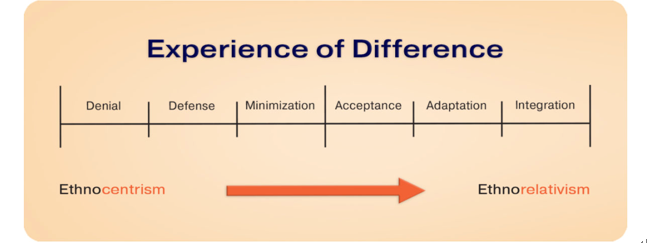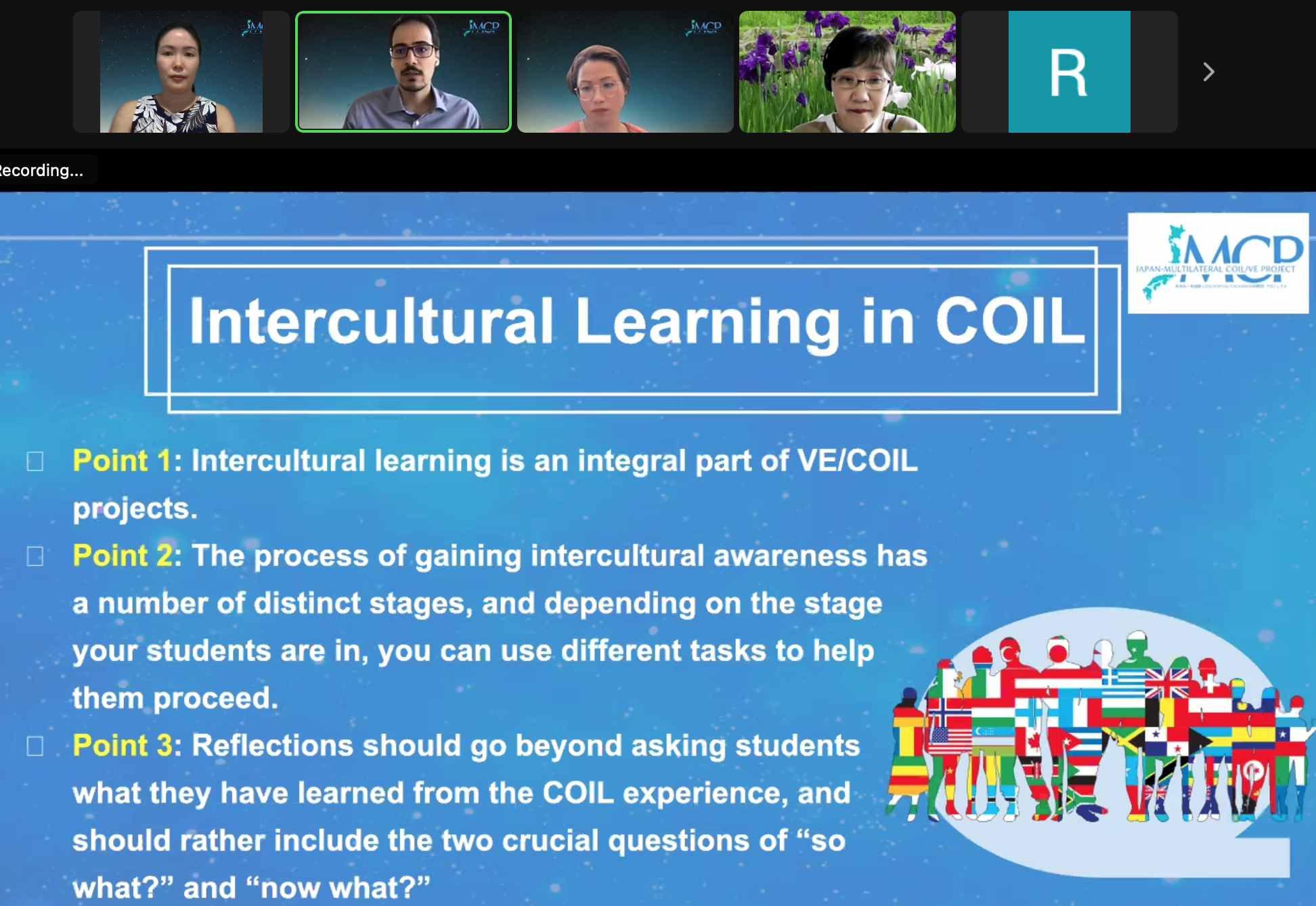2022.06.17セミナーinformation
Summer 2022 MF Training Check-in #2
Our second session for the Summer 2022 MF training started on a beautiful Friday morning.
In our second meeting, we have mainly discussed intercultural learning, bridging the language gap and process-oriented assessment.
In terms of intercultural learning, it has been highlighted that any academic field that makes use of COIL practices needs to take intercultural learning into account. Intercultural learning means that one understands and accepts various types of cultures.
One of the useful models for intercultural learning is the use of the developmental model of intercultural sensitivity. This model comes in handy when we conduct COIL classes. It is important for us as teachers to be aware of where the students stand in the continuum of the model.

Source (https://organizingengagement.org/models/developmental-model-of-intercultural-sensitivity/)
Incidental learning can happen in COIL based learning, but most importantly, we as teachers can prepare and deliver materials and activities that would enhance and maximize their learning opportunities.
It also has been shared that the students who have been exposed to one culture and have adapted it well may once again restart from “denial” or “defense” on the continuum as their first reaction to a new culture.
Of course, it is important to consider the language gap since most of the students who join COIL projects may not be proficient speakers of English. In COIL classes that do not focus on language learning, the teachers should allow their students to use translation machine to deliver their opinions. The teachers can encourage the students to use whatever means to make their communication meaningful.
In this sense, it was pointed out that strategy training should be provided for the students so that they can accommodate their incompetence in their language as well as intercultural encounters.
One of the suggestions was to utilize compensation strategies by Oxford (1990). Skills such as using linguistics cues and guessing can be useful for students who are using their L2 to deliver their messages.

Finally, as our last topic in the meeting, it was agreed that process-oriented assessment has a valid impact on how COIL classes are run efficiently. In the process of carrying out the COIL classes, teachers can reflect not only by the end of COIL sessions but also in the middle of COIL sessions.
Assessment sounds intimidating yet it is actually multifunctional. Hence, when reflecting on COIL classes, we can provide pointers for the students to help to reflect their performances. Reflection needs to take an aspect of reflecting not just on what they have done but also on looking forward to what it would mean for the students. In this regard, it has been suggested that reflection journals can be helpful for the students. They can simply write a sentence or more after each session by reflecting on what they have learned from the COIL lesson as well as what they want to change about themselves in COIL lessons. It also has been discussed that these journals can be written in students’ L1 so that they can freely express their reflection. By the end of the COIL project, it may be a good idea for the teacher to collect those journals and evaluate those journals.